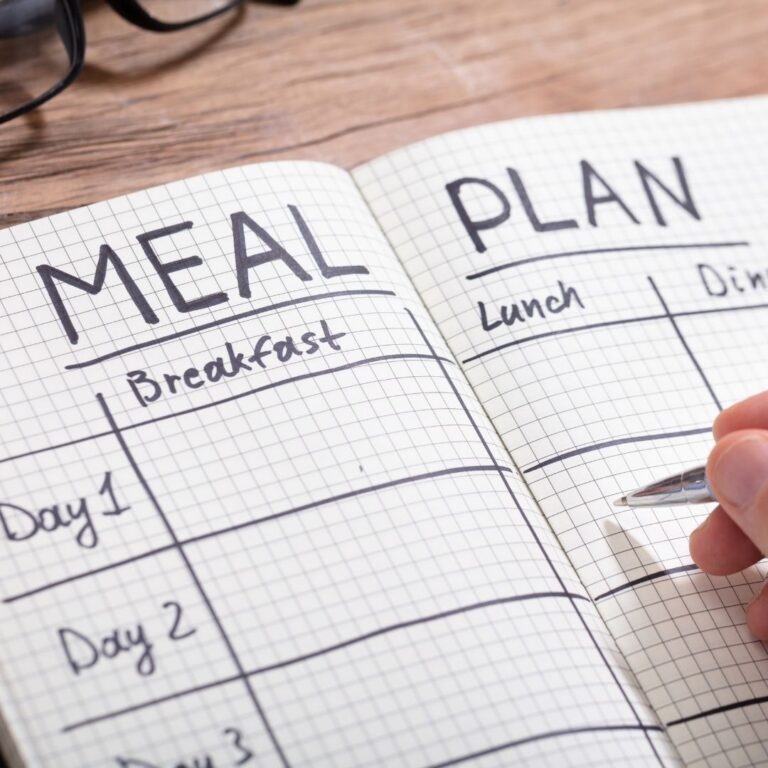The demands of a busy professional life often leave little room for conscious choices, especially when it comes to food. Grabbing whatever is convenient, skipping meals, or relying heavily on takeout can become the norm, leading to energy crashes, nutritional imbalances, and a disconnect from the simple pleasure of eating. However, amidst the hustle, mindful meal planning offers a powerful solution. It’s not just about saving time and money; it’s about intentionally nourishing your body and mind, fostering well-being, and reclaiming a sense of control over your health.
The Pitfalls of Hectic Eating Habits:
For busy professionals, the allure of quick and easy food options is strong. However, consistently neglecting mindful eating can lead to a range of negative consequences:
- Nutrient Deficiencies: Relying on processed or fast food often means missing out on essential vitamins, minerals, and fiber.
- Energy Slumps: Sugary or heavily processed meals can lead to rapid energy spikes followed by debilitating crashes, impacting focus and productivity.
- Weight Fluctuations: Inconsistent eating patterns and unhealthy choices can contribute to weight gain or loss.
- Increased Stress Levels: The guilt and physical discomfort associated with poor eating habits can exacerbate stress.
- Diminished Enjoyment of Food: Eating on the go or while distracted robs us of the sensory experience and satisfaction that comes with a mindful meal.
The Power of Mindful Meal Planning:
Mindful meal planning is a proactive approach that involves intentionally thinking about, selecting, and preparing your meals. It’s not about rigid rules or restrictive diets, but rather about cultivating awareness and making conscious choices that support your health and well-being. Here’s how it benefits busy professionals:
- Saves Time and Reduces Decision Fatigue: By planning ahead, you eliminate the daily “what’s for dinner?” dilemma and reduce impulsive, often unhealthy, choices.
- Promotes Healthier Eating Habits: Planning allows you to prioritize whole foods, fruits, vegetables, and lean proteins, ensuring you get the nutrients you need.
- Reduces Food Waste and Saves Money: Buying only what you need for planned meals minimizes food spoilage and unnecessary spending on takeout.
- Increases Awareness of Your Body’s Needs: The act of planning encourages you to think about what your body needs to feel energized and satisfied.
- Fosters a Greater Appreciation for Food: Mindful planning can lead to more enjoyable and intentional eating experiences.
- Reduces Stress Related to Food: Knowing you have healthy and delicious meals prepared can alleviate the stress associated with last-minute food decisions.
Practical Steps to Mindful Meal Planning:
Integrating mindful meal planning into a busy schedule doesn’t have to be overwhelming. Start with these practical steps:
- Schedule Dedicated Planning Time: Treat meal planning like any other important appointment. Dedicate 15-30 minutes each week to plan your meals.
- Reflect on Your Week: Consider your schedule, including work commitments, social events, and available time for cooking.
- Assess Your Pantry and Fridge: Take stock of what you already have to avoid unnecessary purchases and inspire meal ideas.
- Brainstorm Meal Ideas: Think about healthy and enjoyable meals you like to eat. Look for recipes that are relatively quick and easy to prepare. Consider themes for different nights (e.g., Meatless Monday, Taco Tuesday).
- Create a Shopping List: Based on your meal plan, create a detailed shopping list to ensure you buy everything you need and avoid impulse buys.
- Prep Ahead When Possible: Utilize batch cooking techniques to prepare components of meals in advance. This could include chopping vegetables, cooking grains, or preparing protein sources.
- Be Flexible and Adapt: Life happens! Don’t be afraid to adjust your plan if unexpected events arise. Have a few backup options for busy nights.
- Involve Others (If Applicable): If you live with family or roommates, involve them in the meal planning process to share the responsibility and cater to everyone’s preferences.
- Practice Mindful Grocery Shopping: Be present while shopping, paying attention to the quality and freshness of the food you are selecting.
- Savor Your Meals: When it’s time to eat, take a few moments to appreciate your food. Eat without distractions, paying attention to the taste, texture, and aroma.
Embracing the Journey:
Mindful meal planning is not about achieving perfection overnight. It’s an ongoing process of learning, adapting, and cultivating a more conscious relationship with food. By taking small, consistent steps, busy professionals can transform their eating habits, nourish their bodies and minds, and experience the numerous benefits of intentional and mindful nourishment amidst the demands of their careers. It’s an investment in your well-being that pays dividends in energy, focus, and overall quality of life.


